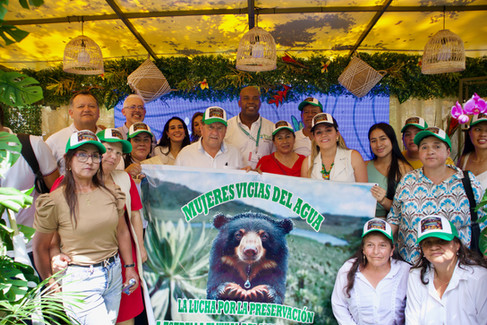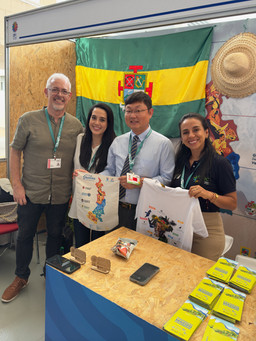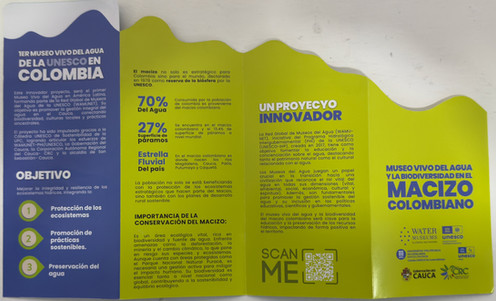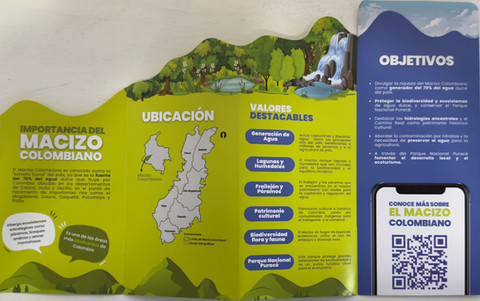The UNESCO Chair on Sustainability at UPC has participated in COP16 in Cali, Colombia, by coordinating the project for the Living Water and Biodiversity Museum of the Colombian Massif. The Museum will be part of the WAMUNET Water Museums network, under UNESCO-IHP. The project was presented on October 29th, both in the green zone of COP16, at the Cauca Pavilion, and in the blue zone.

On October 29, 2024, in the city of Cali, the presentation of the UNESCO Living Water and Biodiversity Museum project took place at COP16. First, a simplified cooperation agreement was signed between the Government of Cauca, WAMUNET, and the UNESCO Chair on Sustainability at UPC. This agreement, revised from the initially proposed version, includes the Municipality of San Sebastián - Cauca and the Cauca Regional Corporation (CRC).
The signing ceremony of the agreement between the Government of Cauca, WAMUNET-UNESCO, the UNESCO Chair on Sustainability at UPC, and the Municipality of San Sebastián, Cauca, took place at Espacio Natura Office Coworking, located in Barrio Centenario, Cali. The event was attended by Mr. Octavio Guzmán, Governor of Cauca; Victoria Santander Ñañez, COP16 Manager for Cauca; Pahola Ordoñez, Mayor of San Sebastián, Cauca; Eriberto Eulisse, Executive Director of the UNESCO Global Network of Water Museums (WAMUNET), who participated via streaming; Jordi Morató Farreras, Director of the UNESCO Chair on Sustainability; Olga Lucía Sánchez, Project Promoter for the UNESCO Chair on Sustainability and contractor for the Government of Cauca; as well as the communications team from the Government of Cauca and the women guardians of the Colombian Massif.
After the signing ceremony, a speech by Eriberto Eulisse, along with a virtual session involving the Women Guardians of the Colombian Massif, took place. During the online event, several representatives from the Women Guardians expressed their confidence in the project and shared their hopes for its positive impact on the region.
The commitment of the Women Guardians to preserve the environment and promoting sustainability was highlighted, reinforcing the significance of collaboration with all communities for the future of the Colombian Massif.


On the same day, October 29, in the afternoon, the agreement for the first WAMUNET (UNESCO-IHP) Living Water Museum in the Colombian Massif was presented in the green zone of the Cauca Government Pavilion. During the event, the agreement was read, and remarks were made by key participants involved in the development of the museum. Speakers included the Governor of Cauca, the Director of the UNESCO Chair on Sustainability at UPC, and the Project Coordinator from the same UNESCO Chair on Sustainability.
On October 29 and 30, the Living Water and Biodiversity Museum was also promoted at the Cauca-Pacific Region Pavilion located in the blue zone of COP16, distributing informational brochures to all attendees and interested individuals who approached to inquire about the museum.












































Comments